Pritzker Architecture Prize
| Pritzker Architecture Prize | |
|---|---|
.gif) Medal of the Pritzker Architecture Prize | |
| Awarded for | A career of achievement in the art of architecture. |
| Sponsored by | Hyatt Foundation |
| Reward(s) | US$100,000 |
| First awarded | 1979 |
| Last awarded | 2017 |
| Website |
www |
The Pritzker Architecture Prize is awarded annually "to honor a living architect or architects whose built work demonstrates a combination of those qualities of talent, vision and commitment, which has produced consistent and significant contributions to humanity and the built environment through the art of architecture."[1] Founded in 1979 by Jay A. Pritzker and his wife Cindy, the award is funded by the Pritzker family and sponsored by the Hyatt Foundation. It is considered to be one of the world's premier architecture prizes,[2] and is often referred to as the Nobel Prize of architecture.[3][4][5]
The prize is said to be awarded "irrespective of nationality, race, creed, or ideology."[6] The recipients receive US$100,000, a citation certificate, and since 1987, a bronze medallion.[7] The designs on the medal are inspired by the work of architect Louis Sullivan, while the Latin inspired inscription on the reverse of the medallion—firmitas, utilitas, venustas (English: firmness, commodity and delight)—is from Ancient Roman architect Vitruvius.[8] Before 1987, a limited edition Henry Moore sculpture accompanied the monetary prize.[7]
The Executive Director of the prize, Martha Thorne,[9] solicits nominations from a range of people, including past Laureates, academics, critics and others "with expertise and interest in the field of architecture".[6] Any licensed architect can also make a personal application for the prize before 1 November every year. In 1988 Gordon Bunshaft nominated himself for the award and eventually won it.[10] The jury, each year consisting of five to nine "experts ... recognized professionals in their own fields of architecture, business, education, publishing, and culture", deliberate early the following year before announcing the winner in spring.[6] The prize Chair is 2002 winner, Glenn Murcutt; earlier chairs were J. Carter Brown (1979–2002), the Lord Rothschild (2003–2004), and the Lord Palumbo (2005-2015).[11]
Controversy
In 2013, "Women in Design", a student organization at the Harvard Graduate School of Design started a petition on behalf of Denise Scott Brown to receive joint recognition with her partner, past prize winner Robert Venturi, furthering a debate about sexism in architecture. The petition, according to The New York Times has "reignited long-simmering tensions in the architectural world over whether women have been consistently denied the standing they deserve in a field whose most prestigious award was not given to a woman until 2004, when Zaha Hadid won."[12] Although the petition received international support of several past recipients, the jury said that it cannot revisit the work of past juries, in order to acknowledge the work of Denise Scott Brown and Lu Wenyu, both women and equal partners to their spouses Venturi and Wang Shu, who won in 1991 and 2012 respectively.[13] Scott Brown told CNN that "as a woman, she had felt excluded by the elite of architecture throughout her career," and that "the Pritzker Prize was based on the fallacy that great architecture was the work of a 'single lone male genius' at the expense of collaborative work."[14]
Laureates
Inaugural winner Philip Johnson was cited "for 50 years of imagination and vitality embodied in a myriad of museums, theaters, libraries, houses, gardens and corporate structures".[15] The 2004 laureate Zaha Hadid was the first female prize winner.[16] Ryue Nishizawa became the youngest winner in 2010 at age 44.[17] Partners in architecture (in 2001, Jacques Herzog and Pierre de Meuron, and in 2010, Kazuyo Sejima and Nishizawa) have shared the award. In 1988, Gordon Bunshaft and Oscar Niemeyer were both separately honored with the award.[18] The most recent winners, in 2017, are the Spanish architects Rafael Aranda, Carme Pigem, and Ramón Vilalta.[19] This was the first time three architects shared the prize.[20]
Table notes
- A. a Roche was born in Ireland.[51]
- B. b Pei was born in China.[52]
- C. c Gehry was born in Canada.[53]
- D. d Hadid was born in Iraq.[54]
- E. e Rogers was born in Italy.[55]
See also
References
General
- "Past laureates". Pritzker Architecture Prize official site. The Hyatt Foundation. Retrieved March 17, 2013.
Specific
- ↑ "The Purpose of the Pritzker Architecture Prize". Pritzker Architecture Prize official site. The Hyatt Foundation. Retrieved June 24, 2009.
- ↑ Pollard, Lawrence (April 13, 2009). "Swiss architect wins top honour". BBC News. Retrieved May 19, 2012.
- 1 2 3 4 5 6 7 Goldberger, Paul (May 28, 1988). "Architecture View; What Pritzker Winners Tell Us About the Prize". The New York Times. Retrieved June 26, 2009.
- ↑ McLean, Pauline (June 9, 2011). "Riverside Museum architect visits 'sophisticated shed'". BBC News. Retrieved May 19, 2012.
- 1 2 Endicott, Katherine (October 14, 2006). "The Mexican garden revisited". San Francisco Chronicle. Retrieved June 26, 2009.
- 1 2 3 "Nomination Process". Pritzker Architecture Prize official site. The Hyatt Foundation. Retrieved July 3, 2009.
- 1 2 "History". Pritzker Architecture Prize official site. The Hyatt Foundation. Retrieved June 27, 2009.
- ↑ "Ceremony and Medal". Pritzker Architecture Prize official site. The Hyatt Foundation. Retrieved June 29, 2009.
- ↑ "2009 Jury Members". Pritzker Architecture Prize official site. The Hyatt Foundation. Retrieved July 3, 2009.
- ↑ "Cityscapes: How to win the Pritzker Architecture Prize: Practice, practice, practice (and don't be shy about nominating yourself)". chicagotribune.com.
- ↑ "Jury". The Hyatt Foundation. Retrieved 10 March 2015.
- ↑ "Partner Without the Prize". The New York Times. Retrieved April 18, 2013.
- ↑ "Pritzker Architecture Prize Committee Denies Honors for Denise Scott Brown". architectmagazine.com. Retrieved June 18, 2013.
- ↑ Catriona Davies (May 29, 2013). "Denise Scott Brown: Architecture favors 'lone male genius' over women". CNN.
- ↑ "Philip Johnson – 1979 Laureate – Jury Citation". Pritzker Architecture Prize official site. The Hyatt Foundation. Archived from the original on April 16, 2009. Retrieved June 30, 2009.
- ↑ "Hadid designs landmark building". BBC News. January 15, 2005. Retrieved June 29, 2009.
- ↑ "Pritzker Architecture Prize 1984 Announcement". The Hyatt Foundation. Retrieved March 30, 2010.
- ↑ Kamin, Blair (1 March 2017). "Pritzker Architecture Prize goes to 3 people — a Spanish team that blends old and new". Chicago Tribune. Retrieved 2 March 2017.
- ↑ Wainwright, Oliver (2017-03-01). "Pritzker architecture prize won by little known Catalan trio". The Guardian. ISSN 0261-3077. Retrieved 2017-03-01.
- ↑ "Announcement: Rafael Aranda, Carme Pigem and Ramon Vilalta". Pritzker Architecture Prize. The Hyatt Foundation. Retrieved 2 March 2017.
- ↑ "People – In the News". Milwaukee Sentinel. Associated Press. May 23, 1979. p. 2. Retrieved June 26, 2009.
- ↑ Reynolds, Nigel (March 23, 2004). "Top prize for architect who is ignored by fellow British". The Daily Telegraph. Retrieved June 26, 2009.
- 1 2 3 4 5 6 7 Pilkington, Ed (April 14, 2009). "Swiss architect untouched by fad or fashion wins prized Pritzker award". The Guardian. Retrieved June 26, 2009.
- 1 2 Muschamp, Herbert (April 26, 1993). "Pritzker Prize for Japanese Architect". The New York Times. Retrieved June 26, 2009.
- 1 2 "The Pritzker Architecture Prize Celebrates its Tenth Anniversary Honoring Two Laureates for 1988". pritzkerprize.com.
- ↑ Iovine, Julie (September 5, 1997). "Aldo Rossi, Architect of Monumental Simplicity, Dies at 66". The New York Times. Retrieved June 26, 2009.
- ↑ Blau, Eleanor (April 8, 1991). "Robert Venturi Is to Receive Pritzker Architecture Prize". The New York Times. Retrieved June 26, 2009.
- ↑ Ribeiro, Ana Maria (February 24, 2009). "Siza Vieira fala para casa cheia". Correio da Manhã (in Portuguese). Retrieved June 26, 2009.
- ↑ Muschamp, Herbert (May 2, 1994). "Priztker prize goes to French architect for the first time". The New York Times. Retrieved June 26, 2009.
- ↑ Viladas, Pilar (August 19, 2001). "Fashion's New Religion". The New York Times. Retrieved June 27, 2009.
- ↑ Samaniego, Fernando (June 1, 1997). "El noruego Sverre Fehn recibe el Pritzker de Arquitectura en el museo Guggenheim Bilbao". El País (in Spanish). Retrieved June 26, 2009.
- ↑ Muschamp, Herbert (April 20, 1998). "Renzo Piano Wins Architecture's Top Prize". The New York Times. Retrieved June 26, 2009.
- ↑ "Koolhaas receives 'Nobel of architecture' in Jerusalem". CNN. May 29, 2000. Retrieved June 26, 2009.
- ↑ "Herzog & de Meuron Propose Castle in The Sky for Hamburg". Das Spiegel. June 14, 2005. Retrieved June 26, 2009.
- ↑ "Top honour for Australian architect". BBC News. April 16, 2002. Retrieved June 26, 2009.
- ↑ "Prize for Opera House designer". BBC News. April 7, 2003. Retrieved June 26, 2009.
- ↑ "Paris skyscraper to rival tower". BBC News. November 28, 2006. Retrieved June 26, 2009.
- ↑ Forgey, Benjamin (April 9, 2006). "Brazilian wins Pritzker Prize". The Washington Post. Retrieved June 26, 2009.
- ↑ Glancey, Jonathan (March 29, 2007). "Rogers takes the 'Nobel for architecture'". The Guardian. Retrieved June 26, 2009.
- ↑ "Nouvel wins top architect's prize". BBC News. March 31, 2008. Retrieved May 19, 2012.
- ↑ Pogrebin, Robin (April 12, 2009). "Pritzker Prize Goes to Peter Zumthor". The New York Times. Retrieved May 19, 2012.
- ↑ Taylor, Kate (March 28, 2011). "Souto de Moura Wins 2011 Pritzker Architecture Prize". The New York Times. Retrieved March 28, 2011.
- ↑ Basulto, David (February 2012). "2012 Pritzker Prize: Wang Shu". Arch Daily. Retrieved February 27, 2012.
- ↑ Hawthorne, Christopher (March 17, 2013). "Japanese architect Toyo Ito, 71, wins Pritzker Prize". Los Angeles Times. Retrieved March 17, 2013.
- ↑ Hawthorne, Christopher (March 24, 2014). "Architect Shigeru Ban, known for disaster relief, wins Pritzker Prize". Los Angeles Times. Retrieved March 24, 2014.
- ↑ "Frei Otto, 2015 Laureate". Pritzker Architecture Prize. March 10, 2015. Retrieved March 11, 2015.
- ↑ Pritzker Prize for Frei Otto, German Architect, Announced After His Death, Robin Pogrebin, The New York Times, March 10, 2015
- ↑ "Announcement". pritzkerprize.com. Retrieved 13 January 2016.
- ↑ "Ceremony". pritzkerprize.com. Retrieved 13 January 2016.
- ↑ "Announcement: Rafael Aranda, Carme Pigem and Ramon Vilalta | The Pritzker Architecture Prize". www.pritzkerprize.com. Retrieved 2017-03-01.
- ↑ "Architecture Award to Kevin Roche". The New York Times. December 14, 1992. Retrieved July 26, 2009.
- ↑ Barboza, David (October 9, 2006). "I. M. Pei in China, Revisiting Roots". The New York Times. Retrieved June 30, 2009.
- ↑ "Frank O. Gehry. (American, born Canada 1929)". Museum of Modern Art. Retrieved July 26, 2009.
- ↑ "Zaha Hadid. (British, born Iraq, 1950)". Museum of Modern Art. Retrieved July 26, 2009.
- ↑ "Richard Rogers, Architect". The Yale Center for Dyslexia & Creativity. Retrieved July 29, 2014.
External links
| Wikimedia Commons has media related to Pritzker Prize winners. |












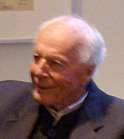
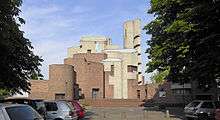





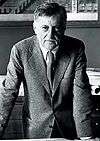
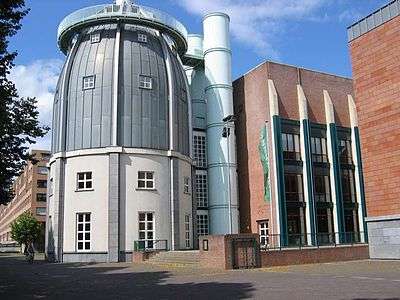













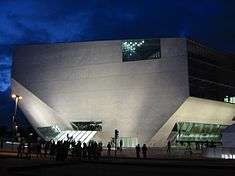

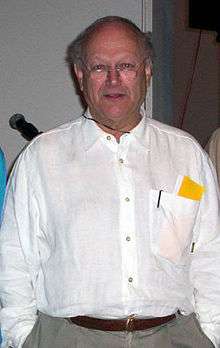





.png)







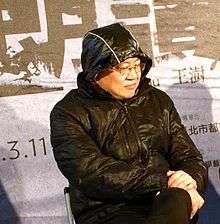

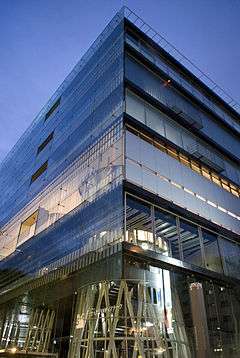

_-_Centre_Pompidou_-_Au%C3%9Fenansicht.jpg)


.jpg)
